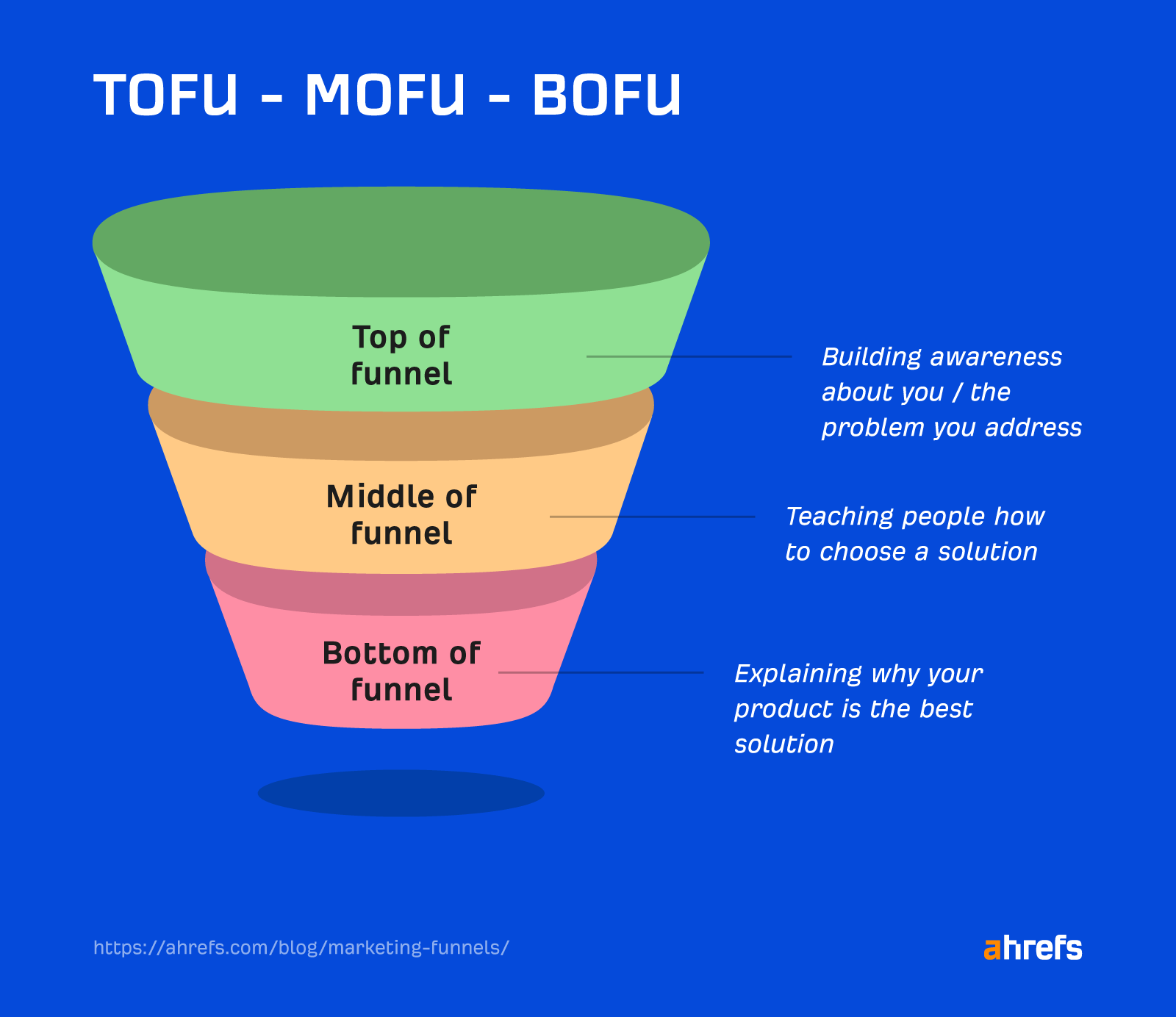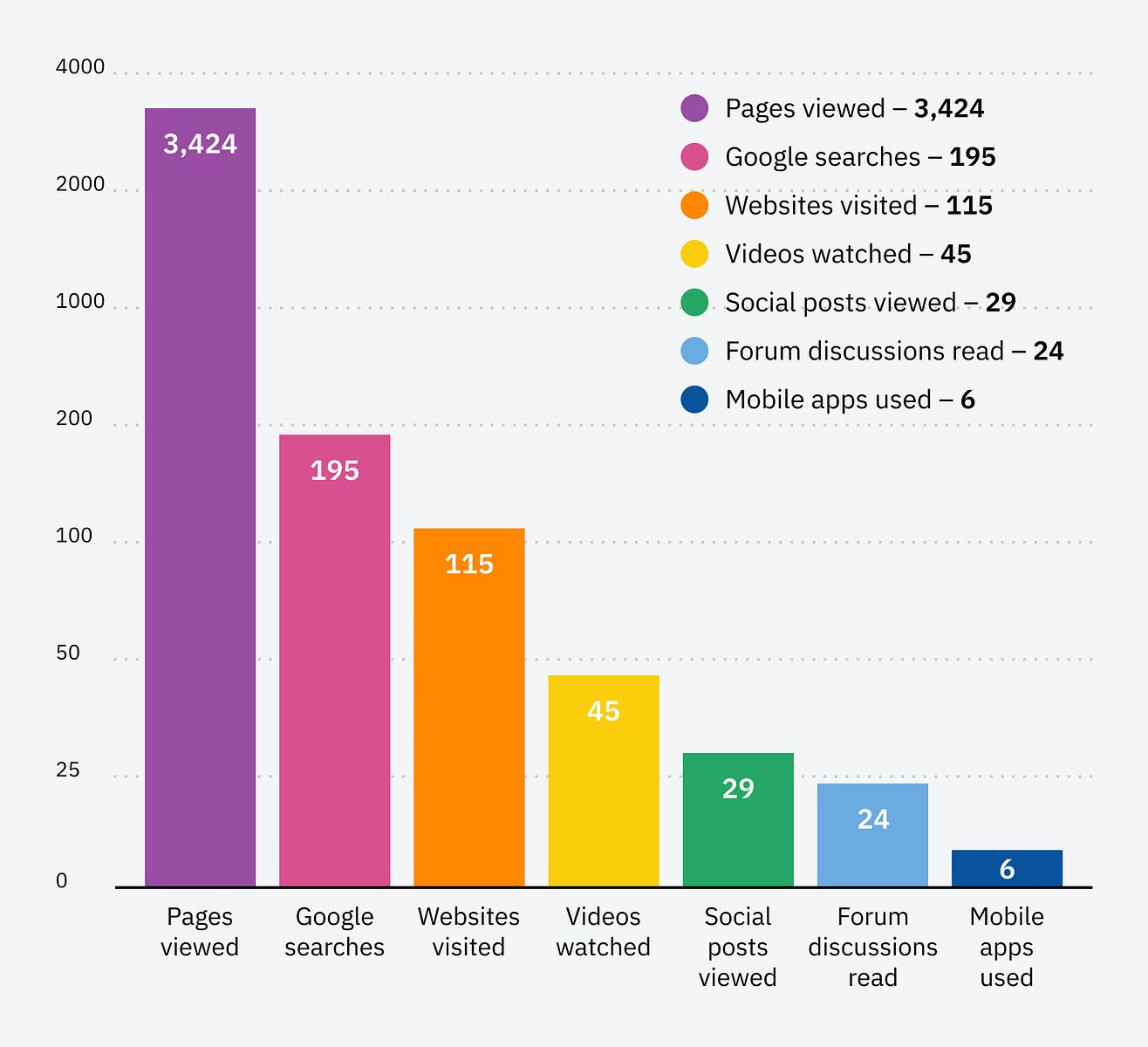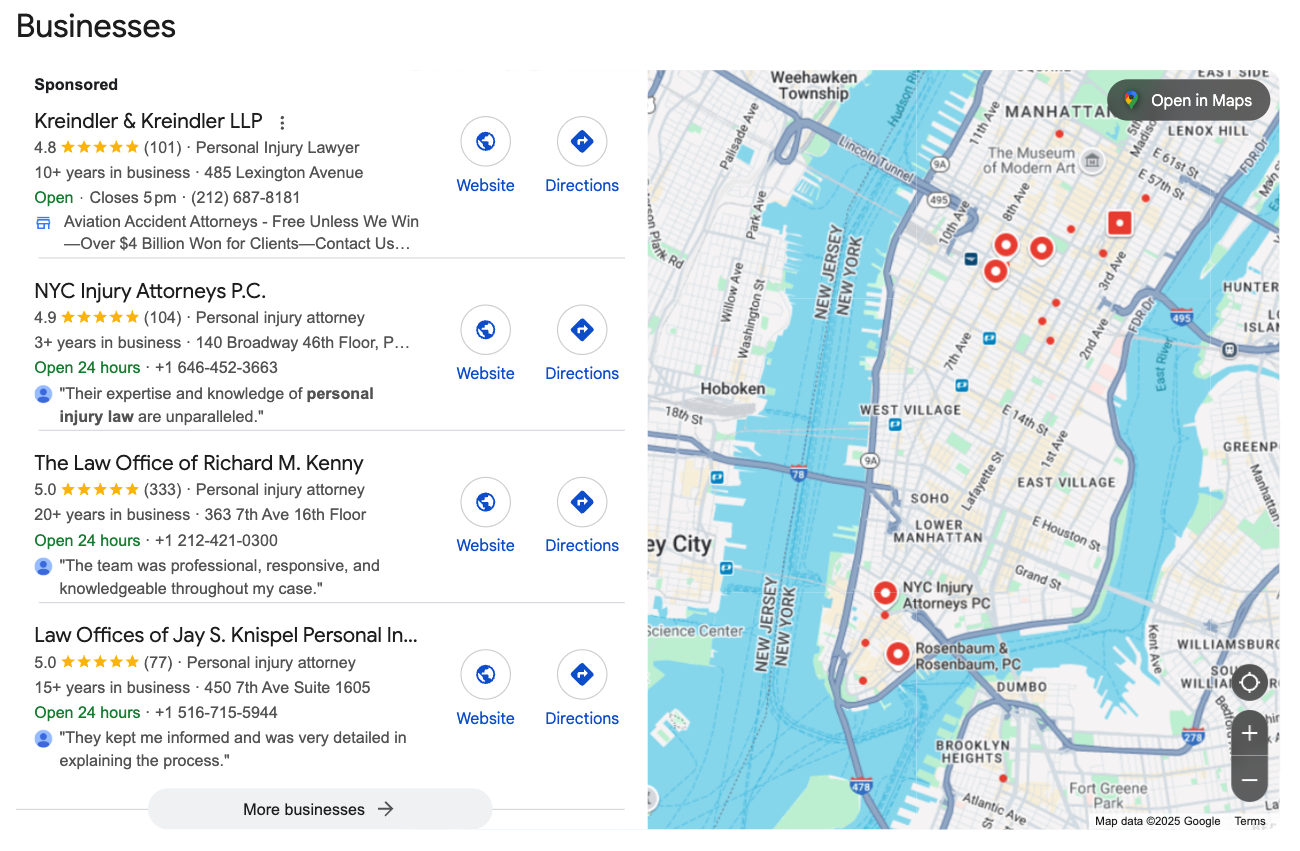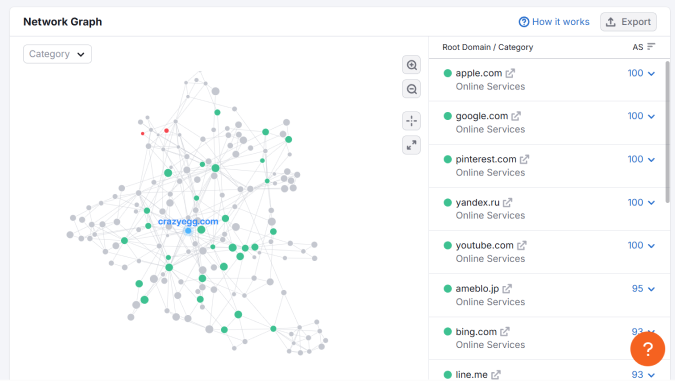Search engine optimization has always been one of the most powerful ways to attract high-intent traffic, and its value has only grown in the age of AI-powered search.
While many marketers focus on paid ads or social media, SEO offers a sustainable, compounding source of visibility across the entire buyer journey.
And today, it’s not just about ranking on Google.
It’s also about showing up in AI overviews, chat results, and voice assistants. Below, we explore the top benefits of SEO, from timeless advantages to emerging wins for brands that want to stay ahead of their competition.
1. Sustainable, Compound Growth in Organic Traffic
Unlike paid ads that stop delivering when your budget runs out, SEO is a long-term investment that compounds over time.
As your site earns more backlinks, topical authority, and indexed content, your visibility naturally expands, often without any incremental effort. Each optimized page becomes a permanent asset, capable of ranking for dozens or even hundreds of long-tail variations.
This snowball effect means SEO isn’t just a one-time boost; it builds momentum. Brands that consistently publish and optimize content often see exponential traffic gains, while also reducing their reliance on paid acquisition channels.
The result?
- Lower customer acquisition costs
- Higher margins
- An organic flywheel that keeps turning long after a campaign ends
2. High-Intent, Conversion-Ready Audience
One of SEO’s greatest strengths is its ability to attract users when they’re actively searching for a solution.
Whether someone types in “best CRM for small business” or “emergency plumber near me,” that search signal reflects immediate, often purchase-ready intent.
Unlike social media or display ads that interrupt a passive audience, SEO meets people in a moment of need. This alignment between query and offering makes organic traffic more likely to convert into leads, sign-ups, or sales.
Plus, with SEO, you’re never renting attention, you’re earning it.
With the right content and optimization, SEO helps you intercept demand exactly when it matters most.
3. Own Your Category in AI-Generated Answers
As search evolves from ten blue links to AI-generated overviews, owning your category in these summaries is the new frontier.
Platforms like Google’s AI Overviews, Perplexity, and ChatGPT increasingly surface answers based on high-authority, well-optimized content. Brands that invest in SEO are more likely to be cited, referenced, or linked in these AI responses, even when users never visit a traditional search results page.
This is no longer just about ranking #1 in Google; it’s about being the source AI trusts.
That requires structured data, strong internal linking, and semantic clarity (all classic SEO principles now repurposed for modern discovery).
If you’re not showing up in these summaries, your competitors who invest in SEO probably are.
4. Improved Brand Trust and Authority
Appearing prominently in search results signals credibility, not just to people, but to AI systems as well.
When users repeatedly see your brand ranking for high-value queries, it builds familiarity and trust. Google, Bing, and AI-powered tools also often associate top-ranked pages with expertise and reliability, reinforcing your brand’s authority in your niche.
This trust snowballs: the more you rank, the more people link to you, mention you, and share your content.
And in an era of AI-generated summaries and LLM-powered recommendations, being recognized as a trustworthy source increases your likelihood of being surfaced again.
Strong SEO helps your brand become the answer, not just an option.
5. Full-Funnel Visibility to Capture Demand at Every Stage
SEO isn’t just about driving traffic, it’s about showing up at every stage of the buyer journey.
From top-of-funnel questions like “how does SEO work?” to bottom-of-funnel searches like “best SEO agency near me,” organic search lets you meet users where they are.

With strategic content planning, SEO helps you:
- Educate prospects early with informational blog posts
- Nurture interest through comparison pages and case studies
- Convert high-intent visitors via service pages and landing pages
This full-funnel coverage reduces drop-off between discovery and decision-making. And because it’s all based on what your audience is actively searching for, your messaging stays relevant every step of the way.
6. Defend Against Competitor Displacement
If you’re not ranking, your competitor probably is. SEO is not just about gaining visibility, especially when people search for your brand directly.
In these cases, it’s about holding your ground.
When you pause organic efforts, you create gaps that others will gladly fill. That means your potential customers might never even know you exist if they are looking for brand recommendations.
SEO helps you:
- Protect your market share in search results
- Maintain authority in your niche by staying consistently visible
- Prevent brand erosion from better-optimized competitors
In a competitive industry, even a small dip in visibility can result in lost leads, customers, or revenue. A steady SEO strategy ensures you’re not silently losing ground to brands that play the long game.
7. Visibility Across Platforms Beyond Google
Modern search is no longer confined to Google. With the rise of AI-powered discovery engines like Perplexity, You.com, and ChatGPT (as well as Microsoft’s integration of Bing into tools like Copilot) your content has more potential endpoints than ever.
Strong SEO practices help ensure your site and brand are visible across this expanding ecosystem including:
- LLMs and AI assistants
- Forums and discussions
- Marketplaces
- Directories and aggregators
- Social media sites
For example, when shopping for a laser cutter, my search journey spanned many of these platforms, not just Google

Despite making over 195 Google searches, 41% of my time was actually spent watching product videos on YouTube and TikTok.
That’s why structured data, crawlable content, content distribution, and authoritative backlinks matter more than ever.
By following SEO fundamentals, you increase the chances of being surfaced, summarized, or linked wherever people ask questions, not just in a search bar.
8. Better Content Discovery by AI Models
As large language models (LLMs) and AI-powered search tools become the new gatekeepers of information, how your content is structured directly impacts its discoverability.
These models don’t just crawl content, they parse meaning, context, and credibility.
That means clear headings, internal linking, structured data, and semantic clarity all help your content get indexed and understood correctly. These have been the staples of good SEO for years.
When done right, SEO ensures your pages aren’t just accessible to search engines, but interpretable by the AI systems that now power tools like ChatGPT, Google’s AI Overviews, and Perplexity.
Better discoverability means higher chances of being cited, summarized, or recommended, even if users never visit your site directly.
9. Supporting PR Through Backlinks and Mentions
SEO and PR are no longer separate strategies. They reinforce each other in very direct ways.
Earning backlinks from reputable publications not only boosts your brand’s online authority but also increases your visibility in AI-powered search tools that rely on high-authority sources.
Backlinks have been a core ranking factor since the early days of SEO. That much hasn’t changed.
What’s new is that brand mentions that have not been linked to your website now also support your brand’s authority in a way that traditional search engines could not previously measure.

When your brand is mentioned or linked in trusted media, industry blogs, or resource roundups, it sends a strong credibility signal to both Google and large language models. These mentions often end up feeding into AI-generated answers, product roundups, and recommendations.
A strong SEO foundation helps you amplify PR wins, turning every media mention into an enduring asset for organic visibility.
10. Content That Powers Other Channels
SEO content is never just for search. It becomes fuel for your entire marketing ecosystem. A well-optimized blog post can double as an email newsletter, a social media thread, a script for a YouTube video, or even a talking point for sales teams.
Because SEO content is rooted in real user intent, it’s often your most valuable messaging, answering the exact questions your audience is already asking.
Repurposing it across channels ensures consistency, saves time, and extends the reach of your content investment.
For example, your SEO content can be repurposed into:
- Email campaigns that educate and convert
- Social media posts that spark engagement
- Sales collateral that answers objections
- Video scripts or webinars that expand reach
- Internal knowledge bases to support customer service
Instead of creating in silos, SEO encourages a content strategy that works harder across formats, touchpoints, and teams.
11. Improved Site Quality and User Experience
Good SEO and good UX go hand in hand. The same practices that help search engines crawl and rank your site also create a better experience for your visitors.
Fast-loading pages, mobile responsiveness, clear navigation, and logical content structure aren’t just ranking factors, they’re usability fundamentals.
SEO encourages you to:
- Streamline site architecture so users (and bots) can find content quickly
- Improve page speed to reduce bounce rates and keep users engaged
- Use headings, lists, and formatting to make content scannable and helpful
- Design intuitive navigation elements like menus, breadcrumbs, and CTAs to guide users
- Ensure accessibility for users across devices and abilities
By investing in SEO, you’re not just optimizing for algorithms; you’re also building a faster, easier, more enjoyable site for real people.
12. Increased Local Visibility in Maps and Local Search Results
For businesses with a physical presence or defined service area, local SEO is one of the highest-impact strategies available.
It ensures your brand appears when nearby users search for solutions, especially in mobile moments like “near me” queries or when asking voice assistants for recommendations.
Optimizing your Google Business Profile, earning local backlinks, and collecting positive reviews all contribute to higher visibility in the Map Pack and local organic results.

This means more calls, visits, and bookings from people who are ready to act. Local SEO helps you win at the neighborhood level while successfully competing with national brands.
13. More First-Party Data for Audience Insights
Every search query is a clue. SEO reveals what your audience is actually thinking, feeling, and asking, in their own words.
This intent-rich data becomes a valuable asset not just for content creation, but for product development, customer service, and strategic planning.
Through tools like Google Search Console and your own analytics, you can identify:
- The questions real customers are asking
- Gaps in your messaging or product features
- Shifts in demand and interest over time
As third-party data becomes harder to access, SEO offers a privacy-safe, direct line to customer insight. It’s not just a traffic channel, it’s an audience research engine.
14. Greater Conversions Compared to Paid Channels
Organic search often drives higher-converting traffic than paid channels. That’s because users who find you through SEO are actively searching, not just clicking out of curiosity or being pushed by an ad.
They’re more likely to be in research or decision mode, making them better aligned with your offering.
Over time, many businesses discover that organic traffic brings:
- Lower bounce rates
- Longer time on site
- Higher conversion rates
Tools like Crazy Egg can help visualize this performance by comparing engagement and conversion behavior across traffic sources.
For many brands, SEO consistently outperforms paid channels when it comes to qualified traffic and actions that matter, like sign-ups, purchases, or inquiries.
As search continues to evolve, SEO stands out as a reliable, high-impact strategy for driving visibility, building trust, and converting intent into results.






